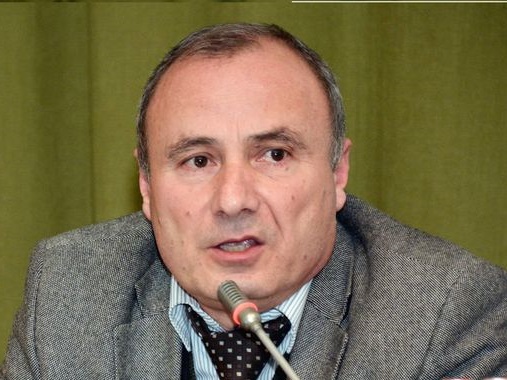
Control of Black Sea Safety and Pollution Risks Using Numerical Models
- May 9, 2023
“Control of Black Sea Safety and Pollution Risks Using Numerical Models”
Envisaging and taking into consideration the NATO standards, a scientific research observatory of the Black Sea will be established in the city of Poti in Georgia;
Under the co-leadership of Academician Givi Gavardashvili, under the aegis of the Georgian Technical University (GTU) (at the Kolkheti Ecological Station), the Black Sea Observatory will be established for the first time in Georgia in accordance with NATO standards (NPBSO). The scientists of the Institute will study the ecological problems of the Black Sea.
The international scientific consortium, with the consideration of NATO standards organized by the Academician G. Gavardashvili, the director of the Institute of Agriculture named after GTU Tsotne Mirtskhulava, which includes six countries of the world, prepared the grant project “Control of the safety and pollution risks of the Black Sea using numerical models”, would be held 2023-2025 years.
The international consortium includes the world’s leading universities and organizations, such as: Georgian Technical University, Georgian Technical University named after Tsotne Mirtskhulava Institute of Water Management, California State University (USA), Institute of Water Problems and Land Reclamation of the National Academy of Agrarian Sciences of Ukraine, Kardeniz Technical University (Trabzon, Turkey), Institute of Climate, Atmosphere and Water Resources of the Bulgarian Academy of Sciences (Sophia, Bulgaria); United Nations Economic and Social Council consultative status organization (ECOSOC), Eco Center of Environmental Protection.
International Scientific Cooperation Agreement was signed in 2019 between Georgian Technical University, named after Tsotne Mirtkhulava and California State University. Since than the Institute of Water Management started developing the project.
Georgian Technical University, named after Tsotne Mirtskhulava, Institute of Water Management, Director, Academician Givi Gavardashvili started active cooperation with the international scientific consortium took the lead of the grant project provided by NATO standards – “Control of Black Sea Safety and Pollution Risks Using Numerical Models”.
In 2022 the working process has been accomplished over the project and was sent for the financing to NATO headquarters Brussels (Belgium).
The development of the project is envisaged for 3 years and the budget is 348,000 Euros.
The project is large-scaled and the pivotally important for Georgia.
It is aimed and its goal is to establish a Black Sea observatory in accordance with NATO standards.
The observatory will be located at the Georgian Technical University, named after Tsotne Mirtskhulava Institute of Water Management, at the Kolkheti testing ecological point (Poti city).
At the same time, processing of hydrodynamic models and innovative digital models of pollution risks and control are provided for ecological studies of the Black Sea.
By the statement of the Director of the Georgian Technical University, named after Tsotne Mirtskhulava Institute of Water Management, Academician Givi Gavardashvili, the scientists in the framework of the project taking into consideration the NATO standards will pay pivotally great attention at such risks as: security of terminals, tank sinking capabilities, military and terrorist attacks in Black Sea ports. In the project, the development of digital models for the river estuaries of the Black Sea is envisaged. It will determine the risks of pollution levels caused by natural disasters, floods, landslides, erosive landslide processes and etc.
Based on the assessment and analysis of these risks and taking into account the appropriate methodology a mathematical model of the Black Sea security will be created.
The results of the project will be tested in the Georgian Black Sea watershed, as well as in Ukraine, Romania, and Bulgaria, Turkey and along the coast of California – to ensure the sustainability of infrastructure in major ports and tourist areas along the California coastline.
